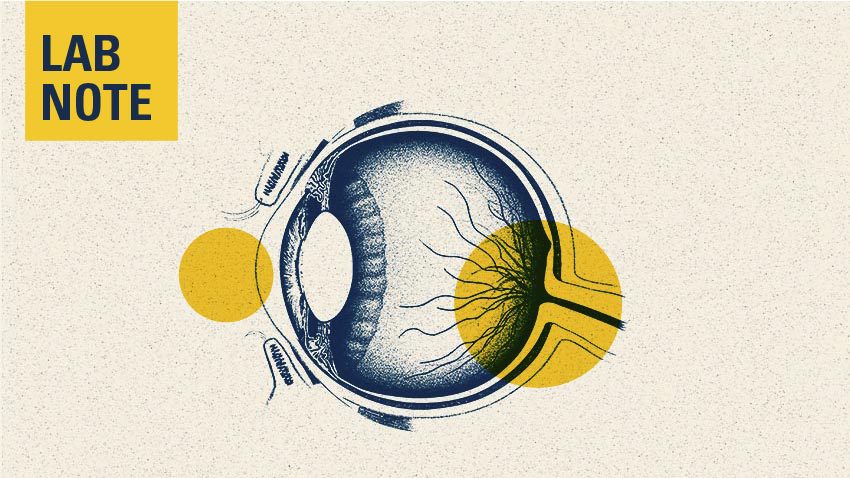
Jacob Dwyer, Justine Ross, Michigan Medicine
Blinding eye diseases like macular degeneration, diabetic retinopathy, and glaucoma are accompanied by the death of neurons in the retina that leads to blindness.
Although several strategies are being investigated for restoring sight to the people who are blind, including using stem cells from the body to regenerate retinal neurons lost to injury or disease. While regenerative stem cells have not been identified in the adult human retina, they have been found in zebrafish.
Experts at U-M Medical School are investigating how cells called Muller glial cells, responsible for regenerating a damaged zebrafish retina, acquire stem cell properties with the hope of eventually developing techniques to encourage human retinas to regenerate.
Building on their work that identified the cells, a new study reported in Proceedings of the National Academy of Science, led by postdoctoral fellow Sumitra Mitra, Ph.D., and research lab specialist Sulochana Devi, Ph.D., in the lab of Daniel Goldman, Ph.D., investigates whether cells other than dying neurons influence Muller glia’s regenerative response.
Interestingly, these cells are present in both the zebrafish and human retina, and in both species, they contribute to retinal structure and homeostasis; however, only in zebrafish do these cells respond to retinal neurodegeneration by adopting stem cell properties that allow them to regenerate retinal neurons.
With the new study, they discovered a Vegf-Notch signaling system that is activated in the injured retina and connects Muller glia with immune cells and cells lining blood vessels. Importantly, they found that each of these cell types contributes to the gene expression changes necessary for Muller glial cell reprogramming and acquisition of stem cell properties.
Interestingly, this signaling system is not found in mammals and thus, might help explain why the human retina does not regenerate.
This work was funded by the Gilbert Family Foundation Vision Restoration Initiative and the NEI.
abblog.uofmhealth.org


